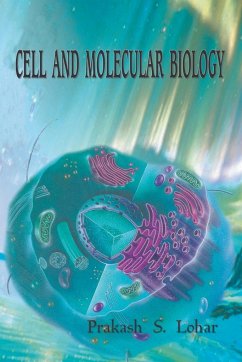
Soft Condensed Matter Physics in Molecular and Cell Biology
Versandkostenfrei!
Versandfertig in 1-2 Wochen
214,99 €
inkl. MwSt.

PAYBACK Punkte
107 °P sammeln!
Soft condensed matter physics, which emerged as a distinct branch of physics in the 1990s, studies complex fluids: liquids in which structures with length scale between the molecular and the macroscopic exist. Polymers, liquid crystals, surfactant solutions, and colloids fall into this category. Physicists deal with properties of soft matter systems that are generic and largely independent of chemical details. They are especially fascinated by the way soft matter systems can harness Brownian motion to self-assemble into higher-order structures. Exploring the generic properties of soft matter o...
Soft condensed matter physics, which emerged as a distinct branch of physics in the 1990s, studies complex fluids: liquids in which structures with length scale between the molecular and the macroscopic exist. Polymers, liquid crystals, surfactant solutions, and colloids fall into this category. Physicists deal with properties of soft matter systems that are generic and largely independent of chemical details. They are especially fascinated by the way soft matter systems can harness Brownian motion to self-assemble into higher-order structures. Exploring the generic properties of soft matter offers insights into many fundamental questions that cut across a number of disciplines. Although many of these apply to materials and industrial applications, the focus of this volume is on their applications in molecular and cell biology based on the realization that biology is soft matter come alive. The chapters in Soft Condensed Matter Physics in Molecular and Cell Biology originated as lectures in the NATO Advanced Science Institute (ASI) and Scottish Universities Summer Schools in Physics with the same name; they represent the thinking of seventeen experts operating at the cutting edge of their respective fields. The book provides a thorough grounding in the fundamental physics of soft matter and then explores its application with regard to the three important classes of biomacromolecules: proteins, DNA, and lipids, as well as to aspects of the biology of cells. The final section of the book considers experimental techniques, covering single molecule force spectroscopy of proteins, the use of optical tweezers, along with X-ray, neutron, and light scattering from solutions. While this work presents fundamentals that make it a suitable text for graduate students in physics, it also offers valuable insights for established soft condensed matter physicists seeking to contribute to biology, and for biologists wanting to understand what the latest think












